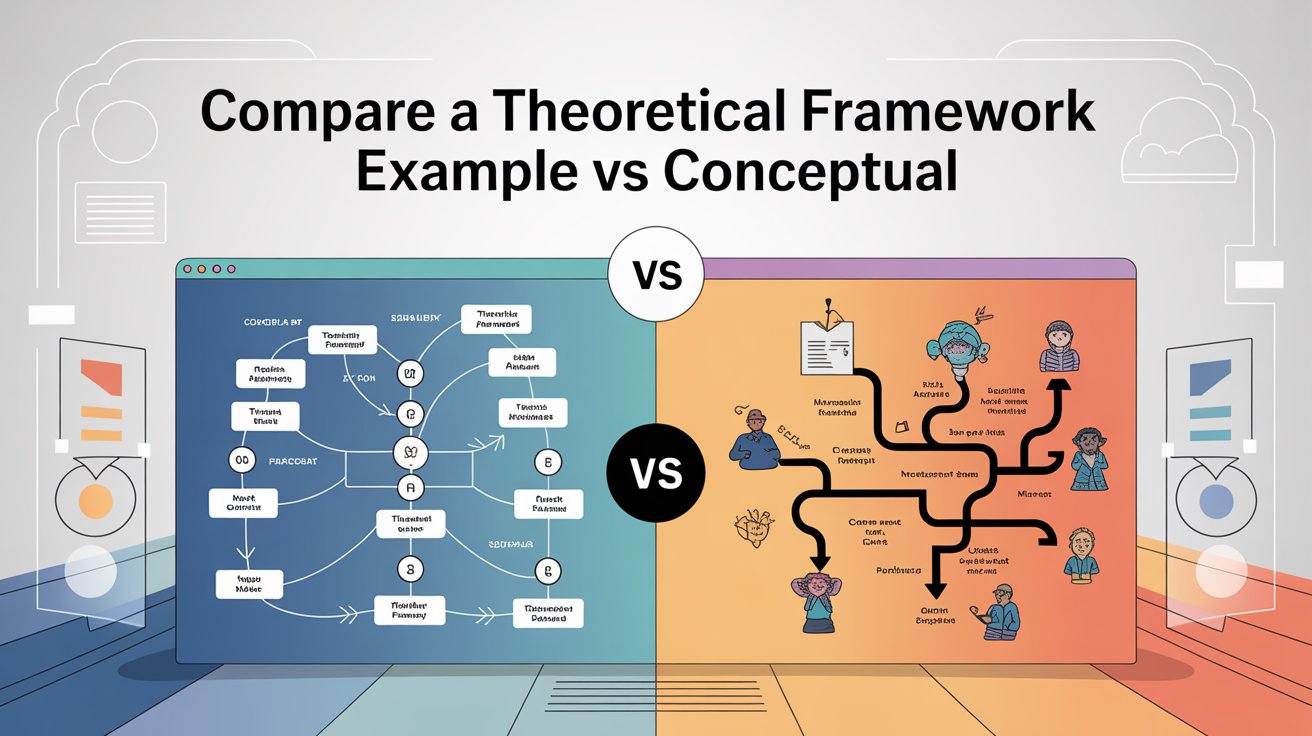Compare a Theoretical Framework Example vs Conceptual

Strong 8k brings an ultra-HD IPTV experience to your living room and your pocket.
When working on a research project, especially at the college level, understanding how to position your work using the right framework is essential. Two major tools—theoretical frameworks and conceptual frameworks—often create confusion. While they may seem interchangeable, they serve distinct purposes and are tied closely to your problem statement, research methodology, and overall paper structure.
This article unpacks the differences between theoretical and conceptual frameworks using examples, comparisons, and expert insights. You’ll also discover how tools like Papergen AI can streamline your framework creation by aligning it with your research paper outline template and helping refine your problem statement.
What Is a Theoretical Framework?
A theoretical framework provides a foundation based on established theories. It’s the lens through which your study views the research problem. It helps justify your research approach by grounding it in scholarly theories and models.
Common Features:
* Anchored in existing theories (e.g., Maslow’s Hierarchy of Needs, Cognitive Dissonance Theory)
* Helps define the variables and relationships you plan to test
* Guides research methodology, especially in quantitative research
Theoretical Framework Example:
Let’s say your problem statement is: "College students experience increased anxiety due to academic and financial pressures."
Theoretical Framework: You could base your study on the Stress-Coping Theory to examine how students adapt or fail to cope with multiple stressors.
This example connects theory directly to your research paper outline, forming the foundation of your argument and methodology.
What Is a Conceptual Framework?
A conceptual framework, on the other hand, is developed by the researcher. It outlines the key concepts, variables, and presumed relationships in your study—often informed by literature but tailored to your specific research angle.
Common Features:
* Created by synthesizing ideas from various sources
* More flexible and tailored to specific problem statement examples
* Often visual (e.g., flowcharts, diagrams)
Conceptual Framework Example:
Let’s revisit the same topic. Based on your reading and synthesis of the literature:
* Independent variables: Academic pressure, financial stress
* Dependent variable: Anxiety levels
* Moderating variable: Coping mechanisms
This structure becomes the backbone of your outline for a research paper, helping guide your data collection and analysis.
Main Differences Between Theoretical and Conceptual Frameworks
1. Foundation:
* Theoretical: Built on existing theories
* Conceptual: Built from your research and observations
2. Purpose:
* Theoretical: Explains why the research problem exists
* Conceptual: Shows how variables connect to answer the research question
3. Structure:
* Theoretical: Often includes a discussion of theoretical models
* Conceptual: Typically includes diagrams and research paper outline examples
4. Use Case:
* Theoretical: Common in advanced or theory-heavy disciplines
* Conceptual: Useful for exploratory studies or mixed methods
How Papergen AI Helps
Papergen AI is an advanced writing assistant that supports academic success by:
* Recommending relevant theories based on your problem statement
* Generating framework diagrams
* Offering research paper outline examples that align with either framework
* Suggesting improvements to your problem statement template
* Enhancing clarity and academic tone
It’s particularly useful if you're unsure how to write a problem statement that aligns with your theoretical or conceptual framework.
Frequently Asked Questions
Q: Can I use both frameworks in one research paper?
A: Yes, but only if they serve different and non-conflicting roles. Typically, one suffices.
Q: Do I need a framework for every research paper?
A: Not always, but papers requiring complex variable relationships, especially theses, usually benefit from one.
Q: Which framework is better for qualitative research?
A: A conceptual framework is generally more flexible and suited to qualitative studies.
Conclusion
Understanding the distinction between a theoretical framework and a conceptual framework is crucial for crafting strong, structured academic writing. Each has unique strengths, tailored for different research types and methodologies.
Whether you’re dealing with a theory-heavy topic or designing your own research model, Papergen AI supports every step of the way—from drafting your problem statement to refining your research paper outline template.
Start writing with purpose—use Papergen AI to master your theoretical or conceptual framework today.
Note: IndiBlogHub features both user-submitted and editorial content. We do not verify third-party contributions. Read our Disclaimer and Privacy Policyfor details.







